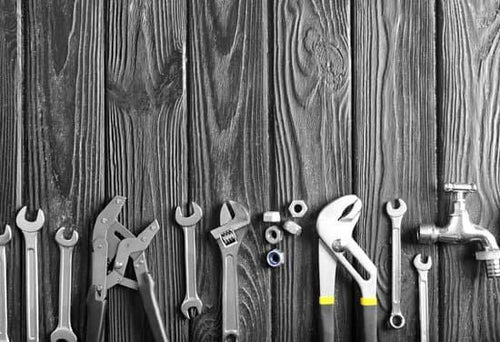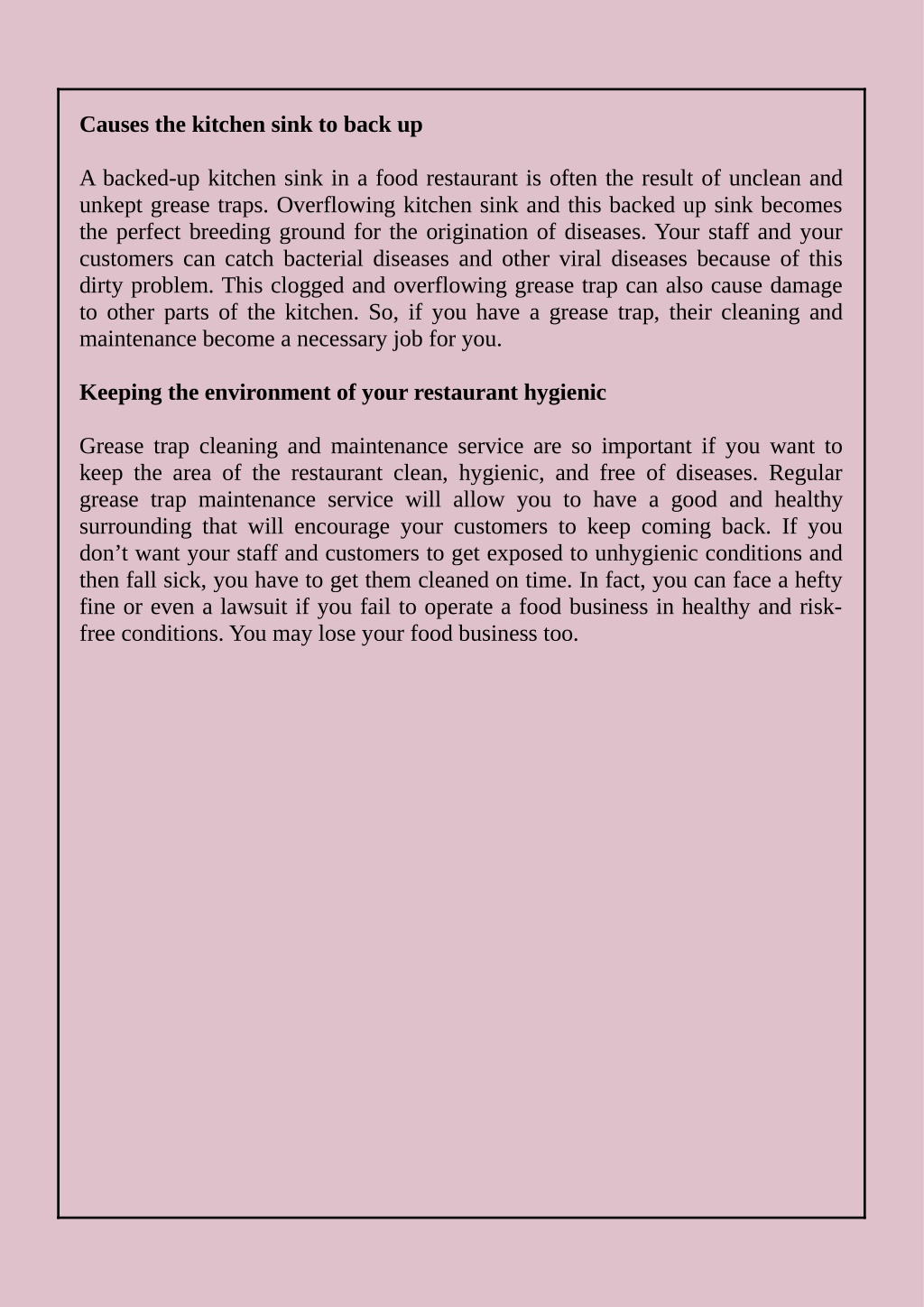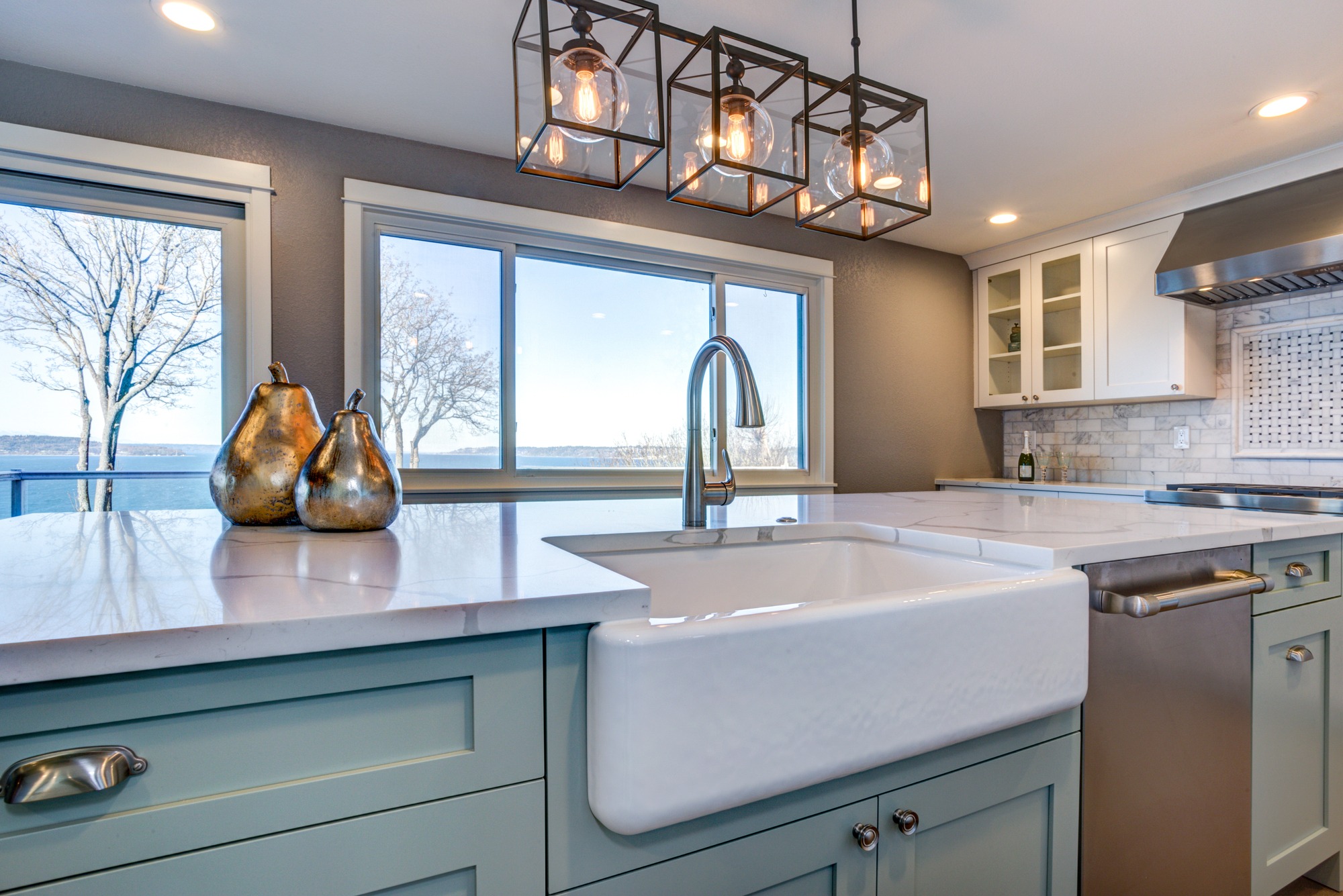If you've ever experienced a backed up kitchen sink, you know how frustrating and inconvenient it can be. Not only does it disrupt your daily routine, but it can also lead to unpleasant odors and potential water damage. Fortunately, there are some simple solutions to fix a backed up kitchen sink and get your plumbing back in working order. The first step to fixing a backed up kitchen sink is identifying the cause. In most cases, the issue can be traced back to a clog in the drain or pipes. This can be caused by various factors such as food debris, grease buildup, or foreign objects getting stuck in the drain. Once you know the cause, you can choose the appropriate method to fix the problem. To start, try using a plunger to clear the clog. Place the plunger over the drain and press down firmly, then pull up quickly to create suction. Repeat this motion several times until the clog loosens and the water starts to drain. If this doesn't work, you can try using a plumbing snake or a mixture of baking soda and vinegar to break up the clog.1. How to Fix a Backed Up Kitchen Sink
As mentioned earlier, the most common cause of a backed up kitchen sink is a clog in the drain or pipes. But what exactly leads to these clogs? In most cases, it's a combination of factors. One of the primary culprits is food debris. When washing dishes or rinsing food off plates, small particles can get stuck in the drain and build up over time. This is especially true for foods that are high in starch, like pasta or rice, which can easily clump together and create a clog. To prevent this, make sure to scrape off excess food into the trash before washing dishes. Another cause is grease buildup. When cooking, oils and grease can get washed down the drain and solidify as they cool. This creates a sticky buildup in the pipes, making it difficult for water to flow through. To avoid this, try to limit the amount of grease going down your drain and properly dispose of it in a container or can.2. Common Causes of a Backed Up Kitchen Sink
If the plunger and other basic methods don't work to clear your backed up kitchen sink, there are some DIY solutions you can try before calling a professional plumber. One option is to use a plumbing snake, also known as an auger, to manually break up the clog. This tool can be inserted into the drain and rotated to dislodge the obstruction. Another DIY solution is using a mixture of baking soda and vinegar. First, pour a pot of boiling water down the drain to help loosen the clog. Then, pour half a cup of baking soda and half a cup of vinegar down the drain, followed by another pot of boiling water. The chemical reaction between the two ingredients can help break up the clog and clear the drain.3. DIY Solutions for a Backed Up Kitchen Sink
It's important to be aware of the warning signs of a backed up kitchen sink so you can take action before it becomes a major problem. Some common signs to look out for include slow draining water, gurgling sounds coming from the drain, and foul odors emanating from the sink. If you notice any of these signs, it's best to address the issue right away to avoid further complications. Another sign of a backed up kitchen sink is water pooling in the sink or overflowing onto the counter. This is a clear indication that there is a blockage in the drain or pipes preventing water from flowing freely. If this happens, try using a plunger or one of the DIY solutions mentioned earlier to clear the clog.4. Signs Your Kitchen Sink is Backing Up
If you've tried DIY methods and your kitchen sink is still backing up, it may be time to call in the professionals. A licensed plumber will have the necessary tools and expertise to properly diagnose and fix the issue. They may use more advanced methods like hydro jetting or camera inspection to identify and remove the clog. Professional plumbing services can also be helpful in preventing future backed up kitchen sinks. They can provide regular maintenance and cleanings to keep your plumbing system in top condition and catch any potential issues before they become major problems.5. Professional Plumbing Services for a Backed Up Kitchen Sink
The best way to deal with a backed up kitchen sink is to prevent it from happening in the first place. By taking some simple precautions, you can avoid the inconvenience and potential damage of a clogged sink. One way to prevent a backed up kitchen sink is to use a sink strainer to catch food debris and prevent it from going down the drain. You can also pour boiling water down the drain regularly to help prevent buildup. Another important step is properly disposing of grease and oil in a container or can rather than pouring it down the drain.6. Preventing a Backed Up Kitchen Sink
If you find yourself with a backed up kitchen sink, don't panic. There are several methods you can try to unclog the drain and get your sink working again. As mentioned earlier, a plunger, plumbing snake, or mixture of baking soda and vinegar can be effective in breaking up a clog. You can also try using a combination of hot water and dish soap to break down grease and oil buildup. If all else fails, it's best to call a professional plumber for assistance.7. How to Unclog a Backed Up Kitchen Sink
To better prevent and address backed up kitchen sinks, it's helpful to have a basic understanding of the drainage system in your sink. Most kitchen sinks have a P-trap, which is a curved pipe located under the sink that traps debris and prevents it from going further down the drain. It's important to regularly clean and maintain the P-trap to prevent clogs. Another important component of the drainage system is the vent pipe, which allows air to flow through the pipes and prevent air pressure from building up. If the vent becomes blocked, it can lead to slow draining or a backed up sink. If you suspect an issue with the vent, it's best to call a professional plumber to assess and fix the problem.8. Understanding the Drainage System of Your Kitchen Sink
There are several mistakes that homeowners make that can contribute to a backed up kitchen sink. One common mistake is using chemical drain cleaners to clear a clog. These products may temporarily solve the issue, but they can also damage your pipes and create bigger problems in the long run. Another mistake is pouring hot grease or oil down the drain. This may seem like an easy way to get rid of excess oil, but it can solidify and cause major clogs in your pipes. It's best to dispose of grease in a container or can and throw it in the trash.9. Common Mistakes That Can Lead to a Backed Up Kitchen Sink
As with any aspect of your home, regular maintenance is crucial for keeping your kitchen sink in good working order. This includes cleaning the sink and drain regularly, checking and cleaning the P-trap, and scheduling professional plumbing services at least once a year. By taking these simple steps, you can prevent backed up kitchen sinks and ensure your plumbing system functions properly for years to come.10. The Importance of Regular Maintenance for Your Kitchen Sink
The Importance of Proper Kitchen Sink Maintenance

The Kitchen Sink: A Crucial Element in House Design
 When it comes to house design, the kitchen sink is often an overlooked aspect. However, it plays a crucial role in both functionality and aesthetics. The sink is a staple in any kitchen and is used for a variety of tasks, from washing dishes to preparing food. But when the kitchen sink backs up, it can quickly become a headache for homeowners.
When it comes to house design, the kitchen sink is often an overlooked aspect. However, it plays a crucial role in both functionality and aesthetics. The sink is a staple in any kitchen and is used for a variety of tasks, from washing dishes to preparing food. But when the kitchen sink backs up, it can quickly become a headache for homeowners.
The Culprits Behind a Backed-Up Kitchen Sink
 There are several reasons why a kitchen sink may back up, and it's essential to identify the root cause to prevent it from happening in the future. One of the most common reasons is the accumulation of food particles, grease, and other debris in the drain pipes. Over time, this buildup can cause clogs, resulting in water backing up in the sink.
Another culprit could be a faulty or outdated plumbing system. Old pipes can become corroded or damaged, leading to leaks and blockages. Additionally, incorrect installation or improper use of the sink can also contribute to backups. For example, pouring oils and fats down the drain can solidify and cause clogs.
There are several reasons why a kitchen sink may back up, and it's essential to identify the root cause to prevent it from happening in the future. One of the most common reasons is the accumulation of food particles, grease, and other debris in the drain pipes. Over time, this buildup can cause clogs, resulting in water backing up in the sink.
Another culprit could be a faulty or outdated plumbing system. Old pipes can become corroded or damaged, leading to leaks and blockages. Additionally, incorrect installation or improper use of the sink can also contribute to backups. For example, pouring oils and fats down the drain can solidify and cause clogs.
The Consequences of a Backed-Up Kitchen Sink
 A backed-up kitchen sink can cause significant inconvenience and disruption in a household. Not only does it render the sink unusable, but it can also result in foul odors and potential health hazards. Stagnant water in the sink can attract bacteria and mold, leading to potential health risks for you and your family. Furthermore, a clogged sink can put a strain on your plumbing system, leading to more significant and costlier issues in the future.
A backed-up kitchen sink can cause significant inconvenience and disruption in a household. Not only does it render the sink unusable, but it can also result in foul odors and potential health hazards. Stagnant water in the sink can attract bacteria and mold, leading to potential health risks for you and your family. Furthermore, a clogged sink can put a strain on your plumbing system, leading to more significant and costlier issues in the future.
Preventing Backups: Proper Kitchen Sink Maintenance
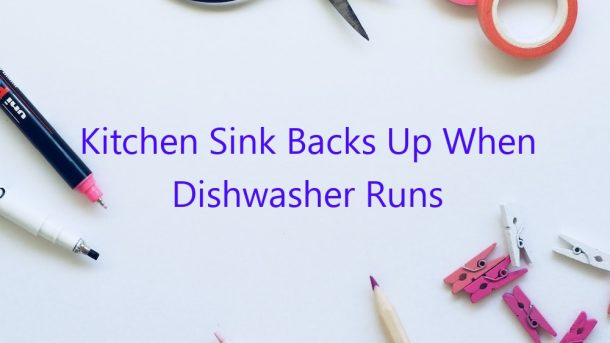 The good news is that there are steps you can take to prevent your kitchen sink from backing up. First and foremost, avoid pouring oils, fats, and other food debris down the drain. Instead, dispose of them in the garbage or compost bin. Regularly cleaning your sink and drain with a mixture of hot water and vinegar can also help prevent buildup.
It's also crucial to keep an eye on your plumbing system and address any issues promptly. If you notice slow drainage or foul odors coming from your sink, it's best to call a professional plumber to inspect and fix the problem before it escalates.
The good news is that there are steps you can take to prevent your kitchen sink from backing up. First and foremost, avoid pouring oils, fats, and other food debris down the drain. Instead, dispose of them in the garbage or compost bin. Regularly cleaning your sink and drain with a mixture of hot water and vinegar can also help prevent buildup.
It's also crucial to keep an eye on your plumbing system and address any issues promptly. If you notice slow drainage or foul odors coming from your sink, it's best to call a professional plumber to inspect and fix the problem before it escalates.
In Conclusion
 In conclusion, the kitchen sink is a crucial element in house design, and proper maintenance is essential to ensure its smooth functioning. By being mindful of what goes down the drain and staying on top of any plumbing issues, you can prevent the inconvenience and potential hazards of a backed-up kitchen sink. So be sure to give your kitchen sink the attention it deserves to keep your home running smoothly.
In conclusion, the kitchen sink is a crucial element in house design, and proper maintenance is essential to ensure its smooth functioning. By being mindful of what goes down the drain and staying on top of any plumbing issues, you can prevent the inconvenience and potential hazards of a backed-up kitchen sink. So be sure to give your kitchen sink the attention it deserves to keep your home running smoothly.




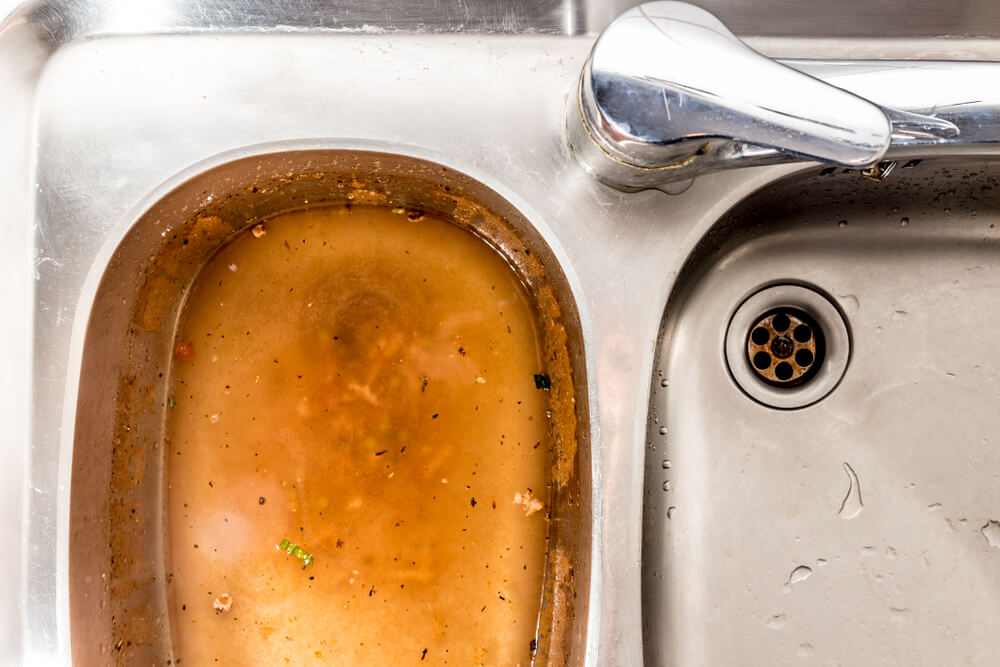



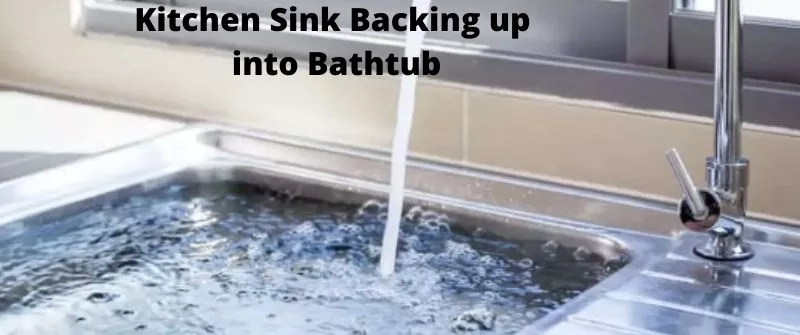












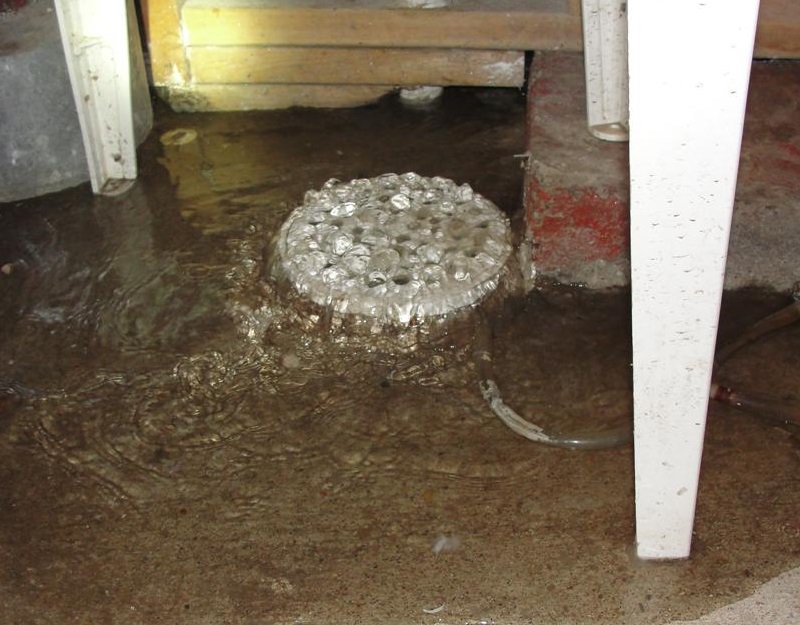





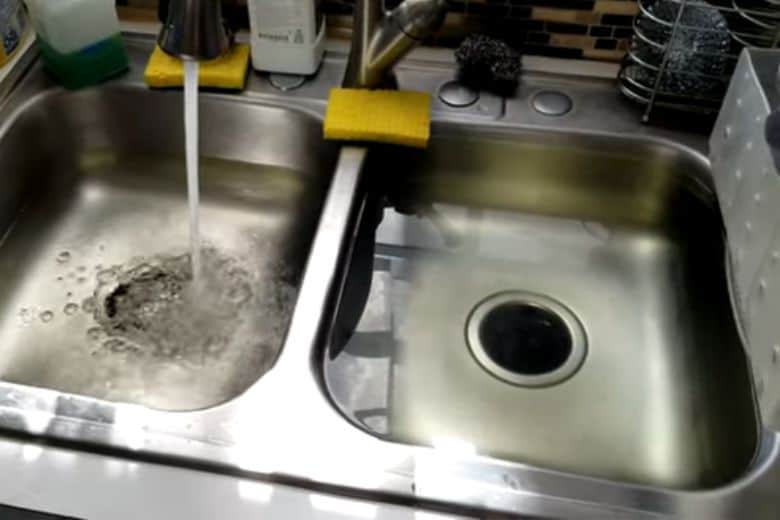
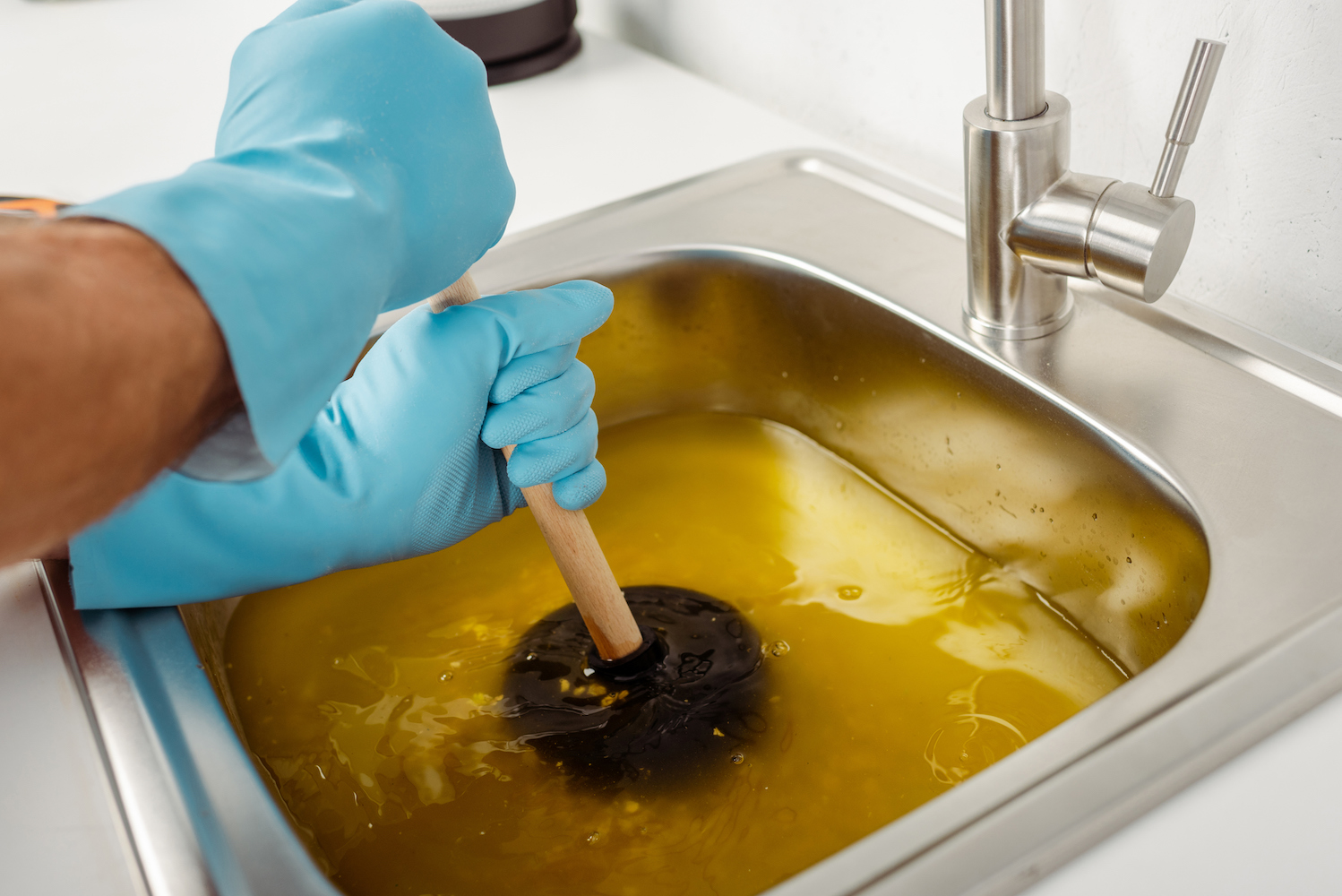

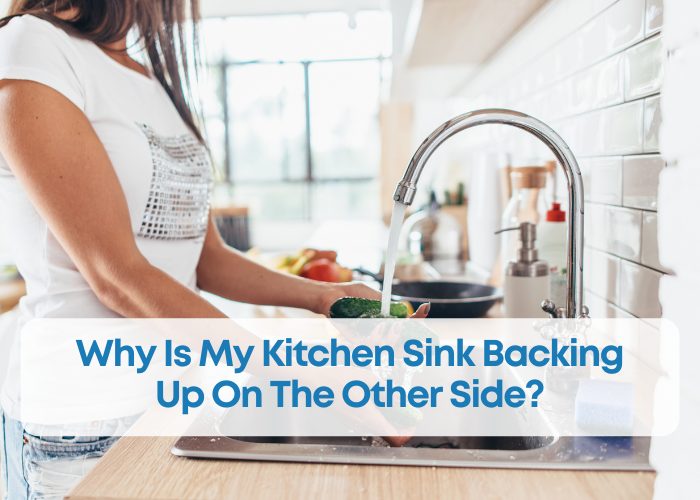
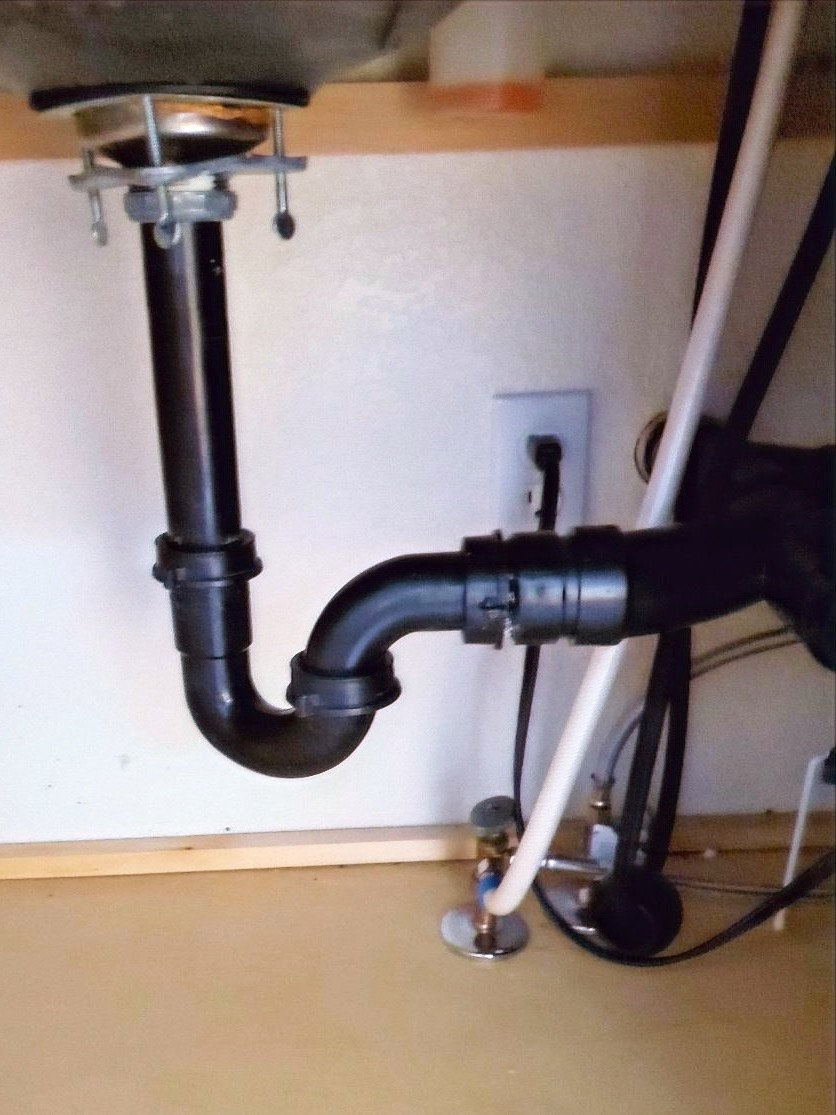

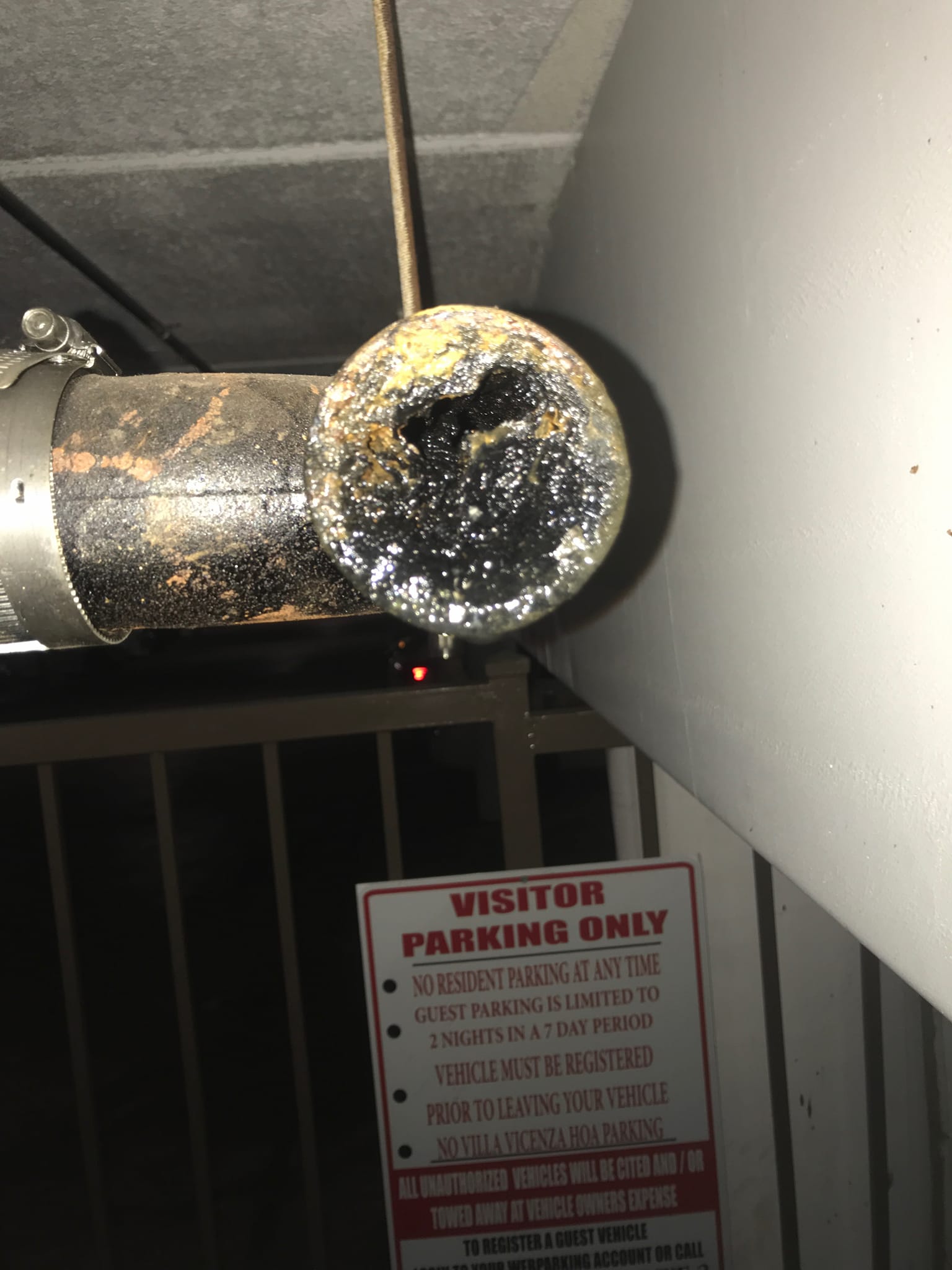

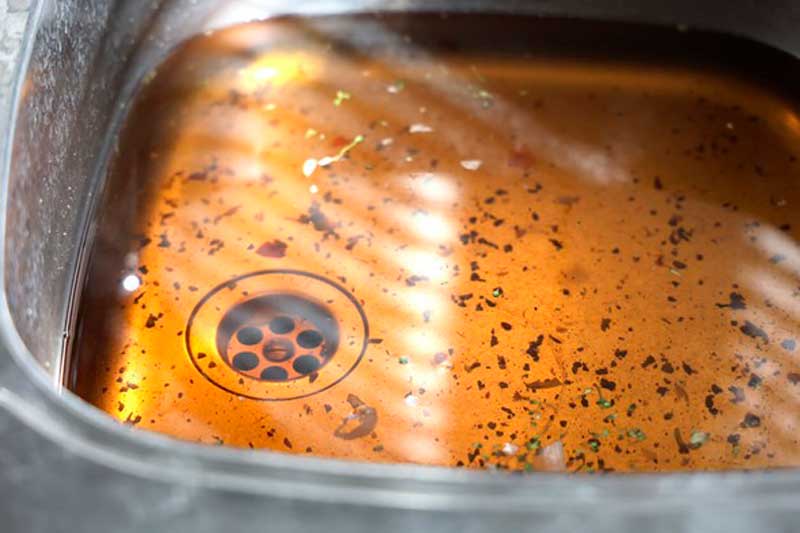

/how-to-install-a-sink-drain-2718789-hero-24e898006ed94c9593a2a268b57989a3.jpg)




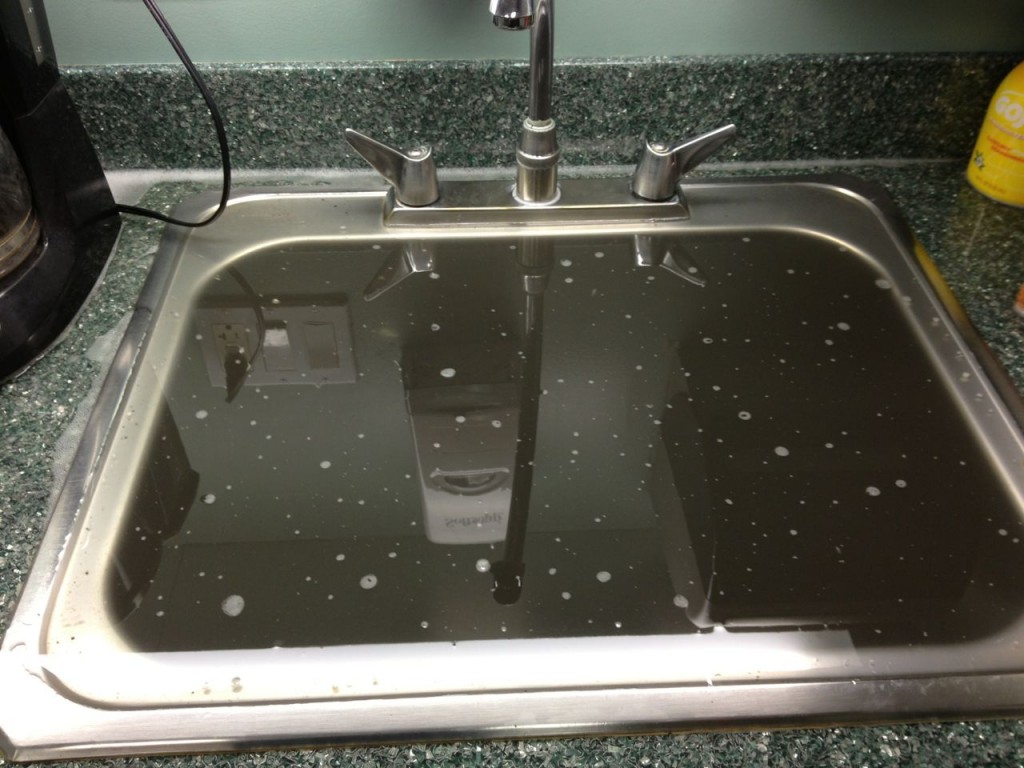





/how-to-unclog-a-kitchen-sink-2718799_sketch_FINAL-8c5caa805a69493ab22dfb537c72a1b7.png)


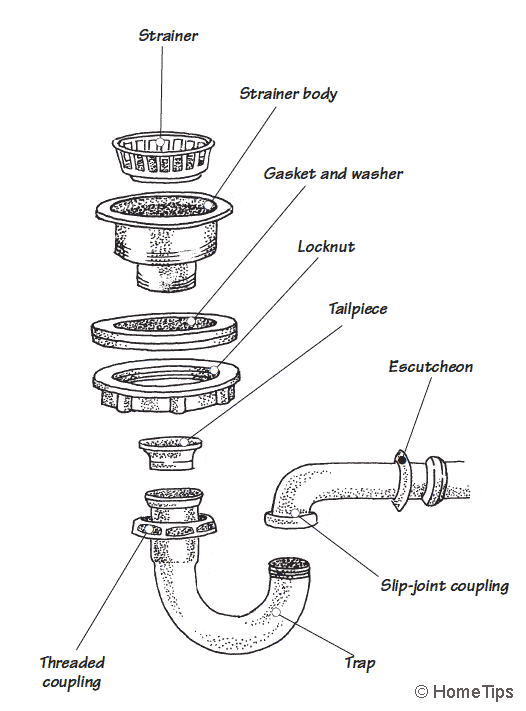
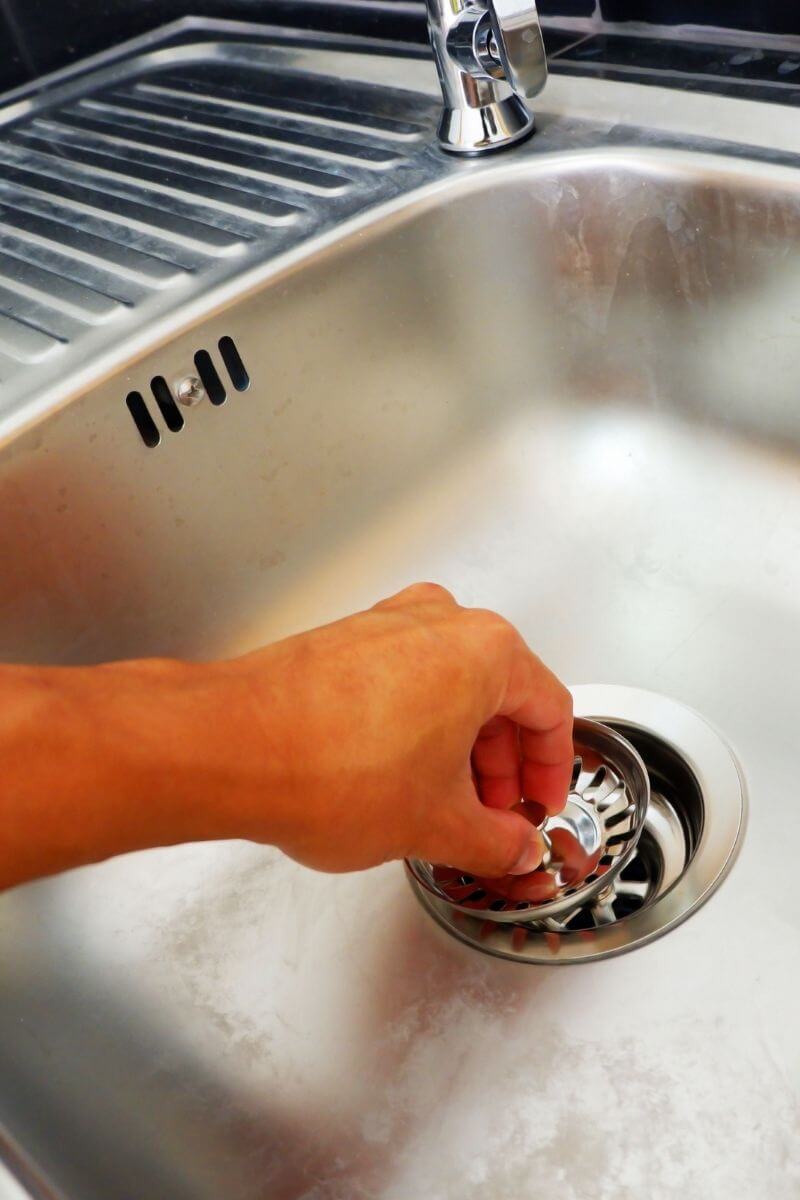





:max_bytes(150000):strip_icc()/how-to-install-a-sink-drain-2718789-hero-24e898006ed94c9593a2a268b57989a3.jpg)


